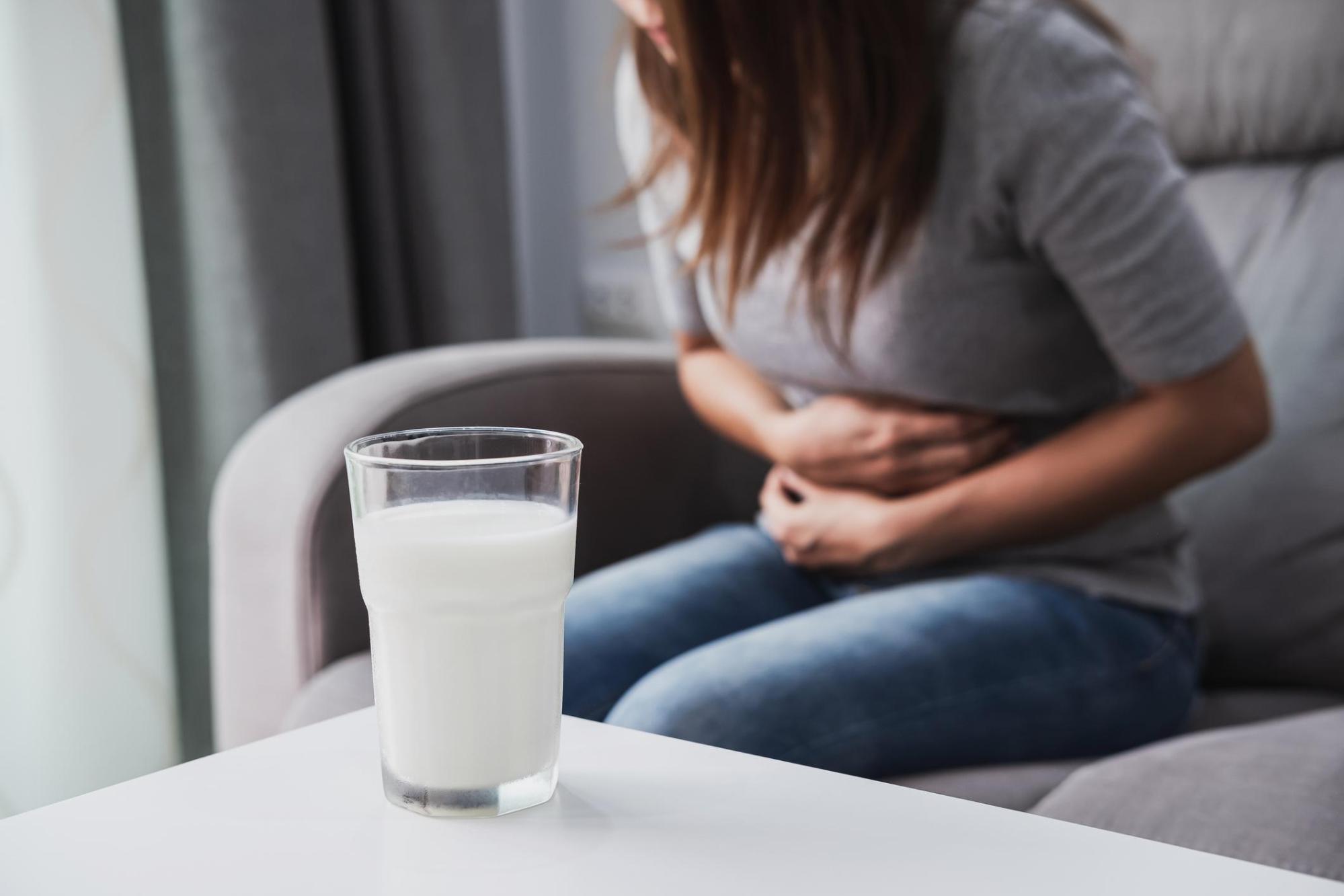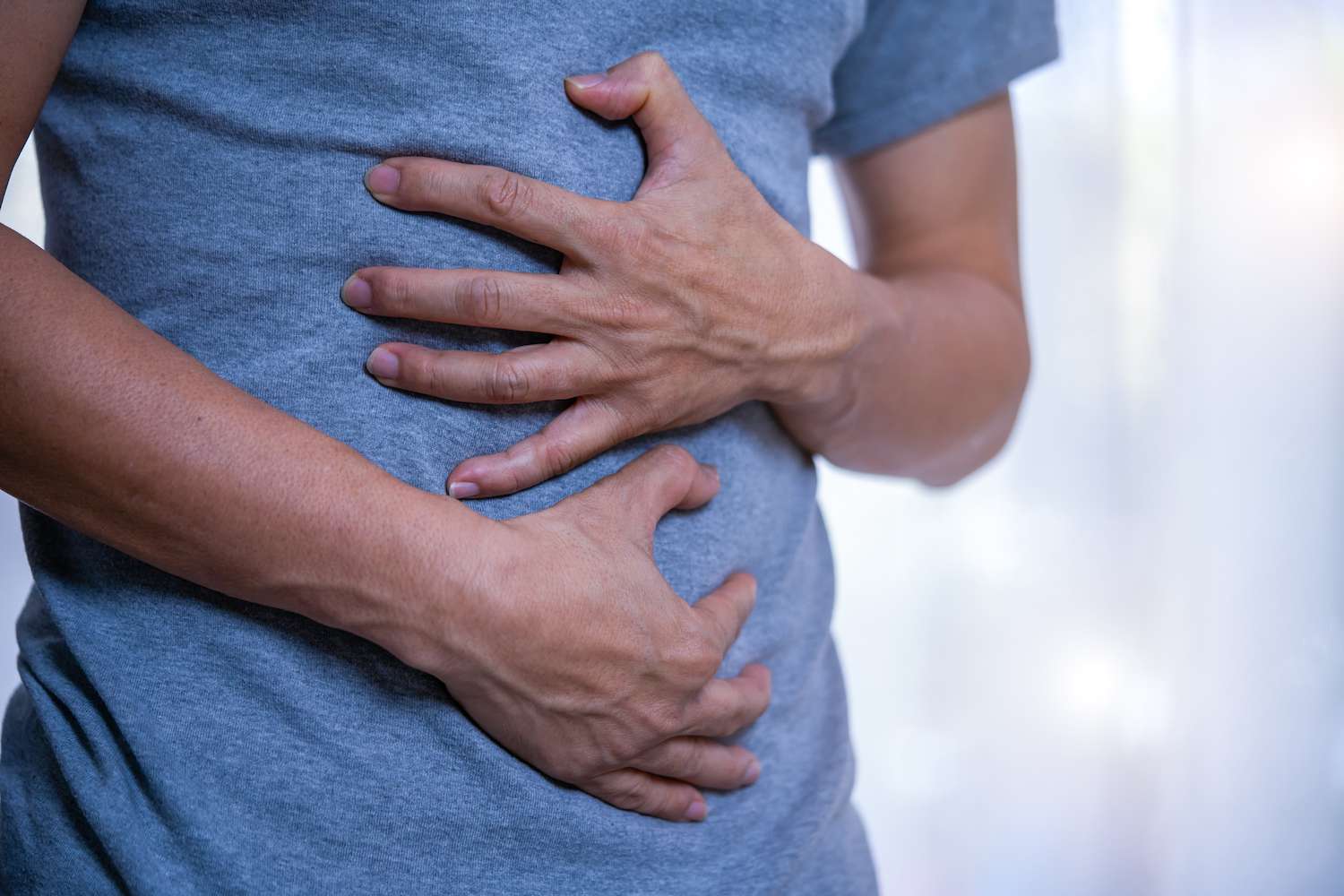Home>How-to Guides>For All>Why Do I Fart Mucus


For All
Why Do I Fart Mucus
Published: July 31, 2023
Discover the reasons behind excessive mucus in flatulence with our comprehensive guide for all. Find solutions and explanations for why you may be experiencing farting with mucus.
(Many of the links in this article redirect to a specific reviewed product. Your purchase of these products through affiliate links helps to generate commission for Under-tec.com, at no extra cost. Learn more)
Table of Contents
Introduction
Flatulence or passing gas is a normal bodily function that everyone experiences from time to time. It can range from being mildly inconvenient to downright embarrassing, but it’s a natural part of the digestive process. However, have you ever found yourself passing not just gas, but also mucus along with it? If so, you may be wondering why mucus is present in your farts.
In this article, we will explore the causes and symptoms of passing mucus in farts, as well as discuss common underlying conditions that may contribute to this phenomenon. We will also delve into the role of dietary factors in mucus production and provide some remedies and treatment options to help alleviate the symptoms. Lastly, we will discuss when it would be appropriate to seek medical help for persistent or concerning symptoms.
Mucus, the slimy substance produced by mucous membranes, is found in various parts of the body, including the respiratory tract, digestive system, and reproductive organs. Its main function is to lubricate and protect these organs. In the digestive system, mucus helps to coat the lining of the intestines and facilitates the passage of stool.
While it’s normal for a small amount of mucus to be present in the stool, excessive mucus production or the presence of mucus in flatulence may indicate an underlying issue. Understanding the causes and symptoms can help shed light on the potential reasons behind the presence of mucus in farting.
Understanding Flatulence
Before diving into the specifics of mucus in flatulence, it’s important to understand the basics of flatulence itself. Flatulence, commonly known as passing gas or farting, is the release of a mixture of gases from the digestive system through the rectum.
Flatulence is a natural byproduct of the digestive process. When we eat or drink, our bodies break down the food into smaller components, such as carbohydrates, proteins, and fats. During this process, certain gases, such as nitrogen, oxygen, carbon dioxide, hydrogen, and methane, can be produced.
These gases accumulate in the intestines and need to be released. When the body senses that the rectum is becoming distended with gas, it triggers the urge to pass gas. This can happen several times throughout the day and is influenced by factors like diet, the types of bacteria in the gut, and individual digestive patterns.
Flatulence can vary in sound and odor, depending on factors such as the amount of gas being released, the speed at which it passes through the digestive system, and the presence of certain sulfur compounds. While flatulence is generally considered normal, excessive gas or persistent foul-smelling gas may be a sign of an underlying issue.
Now that we have a basic understanding of flatulence, let’s explore the presence of mucus in gas and the reasons behind it.
Mucus in Farts: Causes and Symptoms
While passing mucus in farts may not be a common occurrence for everyone, it can happen due to various reasons. Understanding the causes and symptoms can help shed light on the underlying factors contributing to this phenomenon.
One possible cause of mucus in farts is an increase in mucus production within the digestive system. This can be due to inflammation or irritation of the intestines or the presence of an infection. Inflammatory bowel diseases, such as Crohn’s disease and ulcerative colitis, can cause excessive mucus production and may manifest with symptoms like abdominal pain, diarrhea, and bloody stools.
Infections of the gastrointestinal tract, such as gastroenteritis or viral infections, can also result in increased mucus production. These infections often come with symptoms like diarrhea, nausea, vomiting, and abdominal cramps.
Another potential cause of mucus in farts is the presence of a specific condition called mucus colitis, which is characterized by the production of excessive mucus in the colon. This condition can lead to excessive gas, changes in bowel movements, and abdominal discomfort.
In some cases, the presence of mucus in farts may not be indicative of an underlying medical condition. It could simply be due to fluctuations in mucus production within the digestive system. For instance, consuming certain types of foods, such as dairy products, can trigger an increase in mucus production. This is particularly the case for individuals who are lactose intolerant or have a sensitivity to dairy.
Additionally, certain dietary factors, such as a high intake of fiber or spicy foods, can cause temporary changes in bowel movements and mucus production. These changes in the diet can result in increased gas and the presence of mucus in farts.
Overall, the presence of mucus in farts can indicate underlying conditions or dietary factors. If you experience persistent or concerning symptoms along with the presence of mucus in farts, it is important to consult with a healthcare professional for proper evaluation and guidance.
Common Underlying Conditions
When it comes to mucus in farts, there are several common underlying conditions that may contribute to this phenomenon. These conditions can range from mild to more severe, and understanding them can help provide insight into the presence of mucus in flatulence.
1. Inflammatory Bowel Disease (IBD): Conditions such as Crohn’s disease and ulcerative colitis are types of inflammatory bowel disease that can cause inflammation and irritation in the digestive tract. This inflammation can lead to an increase in mucus production, resulting in the presence of mucus in farts. Other symptoms may include abdominal pain, diarrhea, and weight loss.
2. Irritable Bowel Syndrome (IBS): IBS is a chronic disorder that affects the large intestine, causing symptoms like abdominal pain, bloating, and changes in bowel movements. Although the exact cause of IBS is unknown, increased mucus production can be a contributing factor. This can lead to the presence of mucus in farts along with other IBS symptoms.
3. Gastroenteritis: Gastroenteritis refers to inflammation of the stomach and intestines, typically caused by a viral or bacterial infection. In addition to symptoms like diarrhea, nausea, and vomiting, it can also cause an increase in mucus production within the digestive system. This can result in the presence of mucus in farts during the course of the illness.
4. Mucus Colitis: Mucus colitis, also known as microscopic colitis, is a condition characterized by chronic diarrhea, abdominal pain, and the production of excessive mucus in the colon. The exact cause of mucus colitis is unknown, but it is believed to be related to autoimmune factors and may require medical intervention for proper management.
5. Food Sensitivities and Allergies: Certain food sensitivities or allergies can trigger an immune response in the digestive system, leading to inflammation and an increase in mucus production. This can result in the presence of mucus in farts. Common culprits include dairy products, gluten, and certain types of spices or additives.
It is important to note that the presence of mucus in farts alone may not be sufficient to diagnose these underlying conditions. If you suspect an underlying condition or experience persistent symptoms, it is crucial to consult a healthcare professional for proper evaluation and diagnosis.
Dietary Factors and Mucus Production
When it comes to mucus production in the digestive system, dietary factors can play a significant role. Certain foods and substances can trigger an increase or change in mucus production, leading to the presence of mucus in farts.
1. Dairy Products: Dairy products, such as milk, cheese, and ice cream, contain a sugar called lactose. Some individuals have difficulty digesting lactose, leading to symptoms like abdominal bloating, gas, and an increase in mucus production. This can result in the presence of mucus in farts for those who are lactose intolerant or have a sensitivity to dairy.
2. Spicy Foods: Spicy foods, such as chili peppers, can cause irritation in the digestive system. This irritation can trigger an immune response, leading to an increase in mucus production. As a result, consuming spicy foods can result in the presence of mucus in farts and other gastrointestinal symptoms.
3. High Fiber Diet: While fiber is important for digestive health, consuming excessive amounts of fiber can lead to changes in bowel movements and mucus production. Fiber-rich foods, such as whole grains, fruits, and vegetables, can increase the bulk of stool and stimulate mucus production. This can lead to the presence of mucus in farts for individuals who consume a high fiber diet.
4. Food Additives and Preservatives: Some food additives and preservatives, such as sulfites and certain artificial sweeteners, can trigger an immune response or irritate the digestive system. This can lead to an increase in mucus production and potentially result in the presence of mucus in farts. It is important to read labels and be mindful of any sensitivities or reactions to specific additives or preservatives.
5. Alcohol and Caffeine: Alcohol and caffeine are known to irritate the digestive tract and can increase mucus production. This can result in the presence of mucus in farts for individuals who consume alcohol or caffeinated beverages regularly.
It’s important to note that while these dietary factors can contribute to an increase in mucus production and the presence of mucus in farts, they may not be the sole cause. Each individual’s digestive system is unique, and what triggers symptoms in one person may not affect another in the same way. Observing patterns and noting any specific triggers can help identify dietary factors that may be contributing to mucus production and gastrointestinal symptoms.
Remedies and Treatment Options
If you’re experiencing the presence of mucus in farts and it’s causing discomfort or concern, there are several remedies and treatment options that may help alleviate the symptoms. It’s important to note that the appropriate course of action may depend on the underlying cause of the mucus production. Consulting with a healthcare professional is recommended to determine the most suitable treatment plan.
1. Dietary Modifications: Making changes to your diet can be a helpful first step in managing mucus production in the digestive system. For example, if you suspect lactose intolerance or sensitivity to dairy, eliminating or reducing dairy products from your diet may be beneficial. Similarly, avoiding spicy foods or limiting your intake of high-fiber foods can help alleviate symptoms.
2. Probiotics: Probiotics are beneficial bacteria that can help restore balance in the gut and support digestive health. Consuming foods rich in probiotics, such as yogurt and sauerkraut, or taking a probiotic supplement, may help regulate mucus production and improve overall gut health.
3. Medications: In some cases, medications may be prescribed to manage the underlying condition contributing to the presence of mucus in farts. For example, anti-inflammatory medications, such as corticosteroids, may be prescribed for individuals with inflammatory bowel diseases like Crohn’s disease or ulcerative colitis. Antibiotics may also be prescribed to treat bacterial infections that are causing mucus production.
4. Hydration: Staying hydrated is important for maintaining healthy digestion and promoting regular bowel movements. Drinking an adequate amount of water throughout the day can help soften stools and reduce mucus production. It is generally recommended to consume at least 8 glasses of water daily.
5. Stress Management: Stress can have a significant impact on digestive health. Finding effective stress management techniques, such as exercise, meditation, or therapy, can help reduce stress and improve overall gut function. This, in turn, may help alleviate symptoms related to mucus production.
6. Follow a Healthy Lifestyle: Adopting a healthy lifestyle can have a positive impact on digestion. This includes getting regular exercise, getting enough sleep, and avoiding excessive alcohol or caffeine consumption. Maintaining a healthy weight and avoiding smoking can also contribute to better digestive health.
Remember, it’s important to work with a healthcare professional to determine the underlying cause of the mucus production and develop a personalized treatment plan. They can provide specific recommendations based on your individual needs and help monitor your progress as you implement these remedies and treatment options.
When to Seek Medical Help
While the presence of mucus in farts can be attributed to various factors, there are certain situations where it may be necessary to seek medical help. It’s important to listen to your body and reach out to a healthcare professional if you experience any of the following:
1. Persistent Symptoms: If you consistently notice the presence of mucus in your farts over an extended period, it could indicate an underlying issue. Persistent symptoms, such as abdominal pain, diarrhea, bloody stools, or unexplained weight loss, should not be ignored and warrant a medical evaluation.
2. Severe Symptoms: If you experience severe symptoms along with the presence of mucus in farts, it’s crucial to seek medical attention promptly. These symptoms may include severe abdominal pain, persistent vomiting, high fever, or signs of dehydration, such as excessive thirst and decreased urine output.
3. Changes in Bowel Habits: Any sudden or significant changes in your bowel habits, such as a persistent change in frequency, consistency, or color of your stools, should be evaluated by a healthcare professional. These changes may be indicative of an underlying condition that requires medical attention.
4. Family History: If you have a family history of gastrointestinal conditions, such as inflammatory bowel disease or colon cancer, it’s essential to be vigilant about any changes or symptoms you experience. Discussing your family history with a healthcare professional can help in determining appropriate screening measures or early detection of potential issues.
5. Impact on Daily Life: If the presence of mucus in farts is interfering with your daily activities, causing significant discomfort, or affecting your overall quality of life, it’s advisable to seek medical advice. A healthcare professional can assess your symptoms, provide a diagnosis, and recommend suitable treatment options to alleviate your symptoms.
Remember, only a healthcare professional can provide an accurate diagnosis and guide you in the appropriate course of action based on your specific situation. They will take into consideration your medical history, symptoms, and any necessary tests or examinations to help determine the underlying cause and the best treatment approach.
Conclusion
The presence of mucus in farts can be a cause for concern and may indicate underlying issues in the digestive system. Understanding the causes and symptoms can help provide insight into the possible reasons behind this occurrence.
Various factors can contribute to the presence of mucus in farts, including underlying conditions such as inflammatory bowel disease or infections, as well as dietary factors that trigger mucus production. It’s important to note that each individual’s experience may be unique, and what triggers symptoms in one person may not affect another in the same way.
Remedies and treatment options can help manage the presence of mucus in farts. These may include dietary modifications, probiotics, medications, hydration, stress management, and following a healthy lifestyle. Consulting with a healthcare professional is essential for proper evaluation, diagnosis, and guidance in managing symptoms.
In some cases, seeking medical help is necessary, especially for persistent or severe symptoms, significant changes in bowel habits, or if there is a family history of gastrointestinal conditions. It’s important to listen to your body and seek prompt medical attention if needed.
Remember, the information provided in this article is for informational purposes only and should not replace professional medical advice. If you have concerns about the presence of mucus in farts or any related symptoms, it is best to consult with a healthcare professional to determine the most appropriate course of action for your specific situation.










